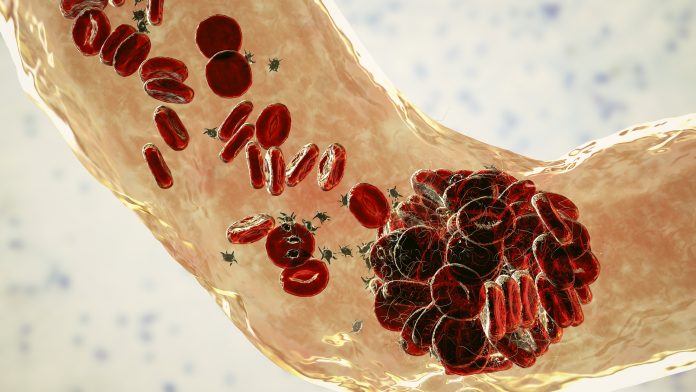
A smart compound that can stop blood clots without causing increased bleeding risk has been developed by researchers based at the University of Michigan and the University of British Columbia.
The macromolecular polyanion inhibitor, currently known as MPI 8, acts to slow down the clotting process in mice without potentially damaging side effects.
“The development of MPI 8 represents a major breakthrough in the field of blood clot prevention and treatment,” said co-lead investigator Jayachandran Kizhakkedathu, a professor and Canada Research Chair at UBC’s department of pathology and laboratory medicine and the UBC Centre for Blood Research, in a press statement.
“By targeting a specific molecule involved in clot formation without disrupting the natural clotting process, we’ve created a blood thinner that has proven safer and more effective in animal models, with enormous potential to improve human lives as well.”
While there are many drugs on the market that can help reduce the risk of blood clots, the main method remains by reducing coagulation, a process that puts individual’s given these drugs at higher risk of potentially dangerous bleeding events.
As reported in the journal Nature Communications, new molecules that neutralize and inhibit polyphosphate, a molecule that triggers the clotting process, have the potential to be a new class of anti-clotting agents.
“As a potent accelerant of blood coagulation which is not involved in essential pathways of coagulation, polyphosphate is a promising target for developing therapies to prevent thrombosis with minimal bleeding side effects,” wrote the authors.
In this study, Kizhakkedathu and colleagues tested several MPI molecules in early studies and selected MPI 8 to test further in mice to assess its efficacy at blocking blood clots without bleeding side effects. It showed good efficacy at blocking blood clots in the mice and no adverse bleeding effects were seen, even at high doses.
This work is at an early stage, but shows promise for further development and testing in humans. “Not only does the drug show promise as a safer and more effective option for patients, but the design platform we used to create MPI 8 is flexible, potentially allowing for the development of additional compounds with similar properties and efficacy,” said first author Chanel La, who worked on the project as a chemistry PhD student in the Kizhakkedathu lab.
“Assuming our work continues to produce positive results, I would be very excited to get MPI 8 into an approved clinical trial and bring this drug closer to becoming a reality for patients in need.”













